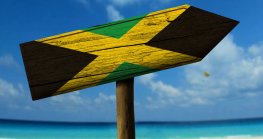The story of George William Gordon

Kingston’s busy streets might feel far removed from the struggles of the 1800s, but the spirit of justice that shaped modern Jamaica can still be felt here.
Among the many voices that rose during the island’s colonial era, one man stood out for using his education and privilege to fight for the oppressed.
His name was George William Gordon.
He was a man whose compassion and courage made him a martyr for justice and a National Hero of Jamaica.
A son of two worlds
George William Gordon was born in 1820 to a white planter and an enslaved Black woman in Cherry Garden, St. Andrew.
Although he was born outside of privilege, his father took responsibility for his education.
Gordon, unlike many men of his social standing, never forgot the struggles of the people who worked the land.
He believed that education and fair representation were the keys to uplifting Jamaica’s Black population in the years following Emancipation.
Voice of the people
Gordon entered politics as a member of the House of Assembly, representing the parish of St. Thomas.
He openly criticized the colonial government for corruption, inequality, and abuse of power.
He pushed for land reforms and better treatment of the poor, often clashing with Governor Edward Eyre and other colonial officials.
When tensions grew in St. Thomas, Gordon encouraged peaceful protest and justice through dialogue.
He was also a mentor to Paul Bogle, who shared his passion for fairness and equality.
Although Gordon was not present at the Morant Bay Rebellion, he was accused of instigating it simply because of his advocacy for the poor.
Unjust trial and execution
After the rebellion, Governor Eyre declared martial law and ordered mass arrests.
Gordon was seized in Kingston, transported illegally to Morant Bay, and placed on trial under the military court.
He was found guilty of treason without fair representation and executed on October 23, 1865.
His death shocked many, even in Britain, and sparked debates about colonial justice and human rights.
His execution became a turning point that exposed the cruelty of the colonial system.
It ultimately led to Governor Eyre’s removal from office and set the stage for future reforms in Jamaica’s governance.
Gordon's legacy of political reform
George William Gordon’s memory lives on as a symbol of justice, equality, and moral leadership.
In 2023, his portrait appeared on the revised Jamaican $50 bank note, alongside his mentee Paul Bogle.
The next time you're in Kingston, visit National Heroes Park.
This is where Gordon is buried among Jamaica’s greatest leaders.
Take a moment at his monument to reflect on the price of speaking truth to power and the enduring need for justice in every generation.
Image credit: Jamaica Experiences / AI artwork created with ChatGPT (OpenAI).
© 2019 Jamaica Experiences All Rights Reserved



















